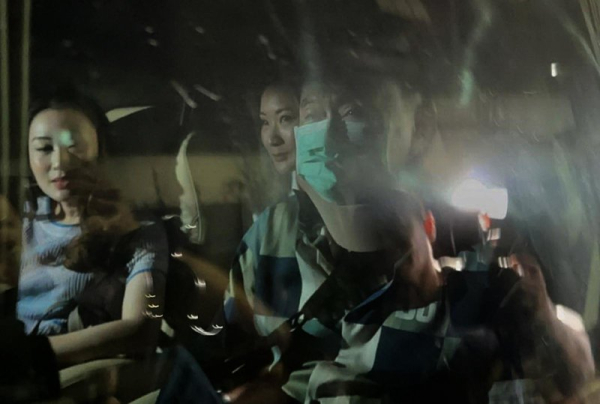
Former Thai Prime Minister Thaksin Shinawatra (R) sits inside a van as he departs Police General Hospital in Bangkok, Thailand, on Sunday. The convicted former prime minister was among 930 prisoners freed from prison on parole, due to his age and “serious illness.” Photo by EPA-EFE
Thailand’s convicted former Prime Minister Thaksin Shinawatra has been released on parole, some six months after he was arrested on his return to the country following a self-imposed exile of more than 15 years.
Shinawatra was discharged from the Police General Hospital shortly after 6 a.m. local time Sunday, the Bangkok Post reported, adding that he was wearing a long-sleeved shirt, shorts, a face mask, a neck brace and an arm sling. Advertisement
He arrived at his Charan Sanit Wong 69 Road home in the Bang Phlat district of Bangcock about 20 minutes later by van, the local newspaper said.
The 74-year-old served as Thailand’s prime minister from 2001 to 2006 when he was ousted in a military coup. He then resided overseas from 2008 until August when he returned to Thailand and was sentenced to eight years in prison on charges of conflict of interest and abuse of authority.
Shortly after his arrest, he was transported to the Police General Hospital as he suffered from various health issues. His sentence was then reduced to one year.
On Tuesday, the Justice Department announced he was to be paroled as he was above the age of 70 and suffered from serious illnesses. Advertisement
The department said Shinawatra was among 930 inmates whose parole application had been approved.
The release of Shinawatra, the former owner of Manchester United and a powerful politician in the Asian nation, has raised concerns that his parole was the result of a deal he made with the government as his return to Thailand came hours before Srettha Thavisin was elected prime minister.
During a press conference on Sunday, Thavisin attempted to assuage such concerns as well as those surrounding how much influence Shinawatra may have on politics following his release, by stating: “The Thai Constitution only allows one prime minister at a time,” The New York Times reported.